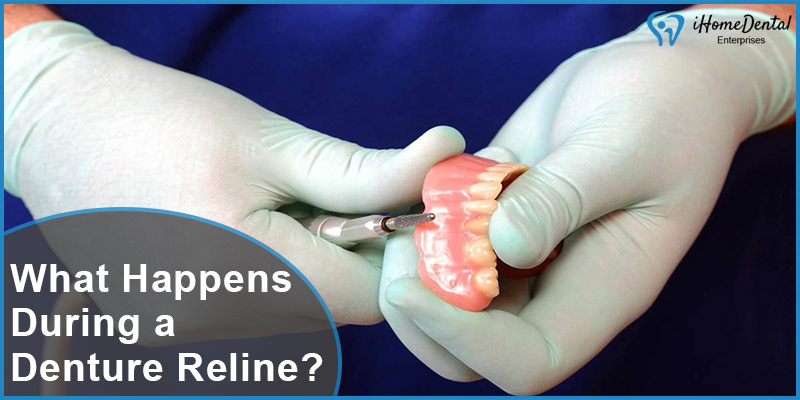
Your jaw may have changed its shape with time, and your old dentures may not fix your jaw. This is a common issue in people in with their growing age. However, this issue can lead to several other problems in your mouth. For instance, you may feel acute pain or severe discomfort while talking or chewing.
Although your dentures have helped you a lot in several activities, what would you do if these dentures do not fit your mouth? If your dentures get tighten or loosen, let us help you in fixing them. You can affordably reline your dentures back with your gums and enjoy your favorite meal effortlessly.
Since dentures are amazingly durable and do not get damaged very easily, they need regular maintenance and checkups; with the help of these denture inspections, you get to know whether they need relining. But what is the fundamental difference between a denture repair and a denture reline? Let’s move on to this article and learn about some interesting facts about dentures.
Difference Between Denture Reline and Denture Repair
A denture reline is quite a different procedure from that of a denture repair. However, these two processes are executed to your dentures for their well-being.
A denture reline is a process that reconstructs the surface of your denture that fixes your gums. Relining your dentures helps fix them within your mouth. Your body tissues are continuously changing their shape, so your mouth tissues are; thus, it becomes harder to fix your old dentures. These dentures should be relined every year or two to fit well and perform their tasks appropriately.
On the other hand, a denture repair is different from a denture reline, which reforms your existing damaged dentures. It is required in case if you hit or fall your dentures and they become crack or break. However, a denture repair is needed when your dentures contain small cracks or big fractures.
Why you Need Denture Reline?
While wearing your dentures, if you feel new changes in your dentures such as, they become loose or tighten, you should instantly visit your dentist to examine your dentures for these fluctuations. However, below are some prevalent symptoms via which you can easily understand if you need to reline your dentures.
➤ If you feel difficulty in chewing your food.
➤ Extensive inflammation, infection, or awkwardness.
➤ If your dentures become two or more years older.
➤ If your dentures do not fit your mouth.
➤ Your dentures slip off and on.
What Happens While Relining Dentures?
Usually, there are two types of denture relines; soft reline and hard reline. These two dentures work differently.
Soft Reline
For some patients, their gums become too tender that they cannot wear hard dentures. Wearing hard dentures may lead them to sore gums, gum inflammation, or bleeding gums. For such patients, a soft reline is a perfect option. Typically, soft reline is suggested for those people who are new denture wearers and have bone reabsorption problems.
When you are doing soft reline, a liquid polymer is coated on your denture, which adds an extra penetration. More a pad is also added to provide softness and comfort for patients to wear their dentures with more ease.
| A soft reline is gentler to your tissues which tenderly forces your denture |
Hard Reline
The hard reline is ideal for full dentures every couple of years. A hard reline assures that you don’t require an entire new fitting of your dentures; rather, it replaces the comfortability and fixture of your denture according to your mouth shape.
➤ While doing hard reline of your dentures, several things would happen, which are discussed below:
➤ The denturist eradicates some pieces of plastic from the inside of your dentures.
➤ Then places putty where your dentures touch with the gums or tissues.
➤ Using this putty, the denturist will take an impression of your mouth.
➤ After the putty becomes hard and set, acrylic is replaced on the tissues from your denture side.
➤ Now your dentures would perfectly fit in your mouth.
| A hard reline works more durably and opted as a permanent solution to your dentures. It lasts longer and more reasonable as compared to a soft reline. |
Your satisfaction is our first priority. We want you to talk and eat comfortably with your dentures by relining them and fix your problem. Make your decisions now and pass a wide smile with confidence.





Leave a Reply